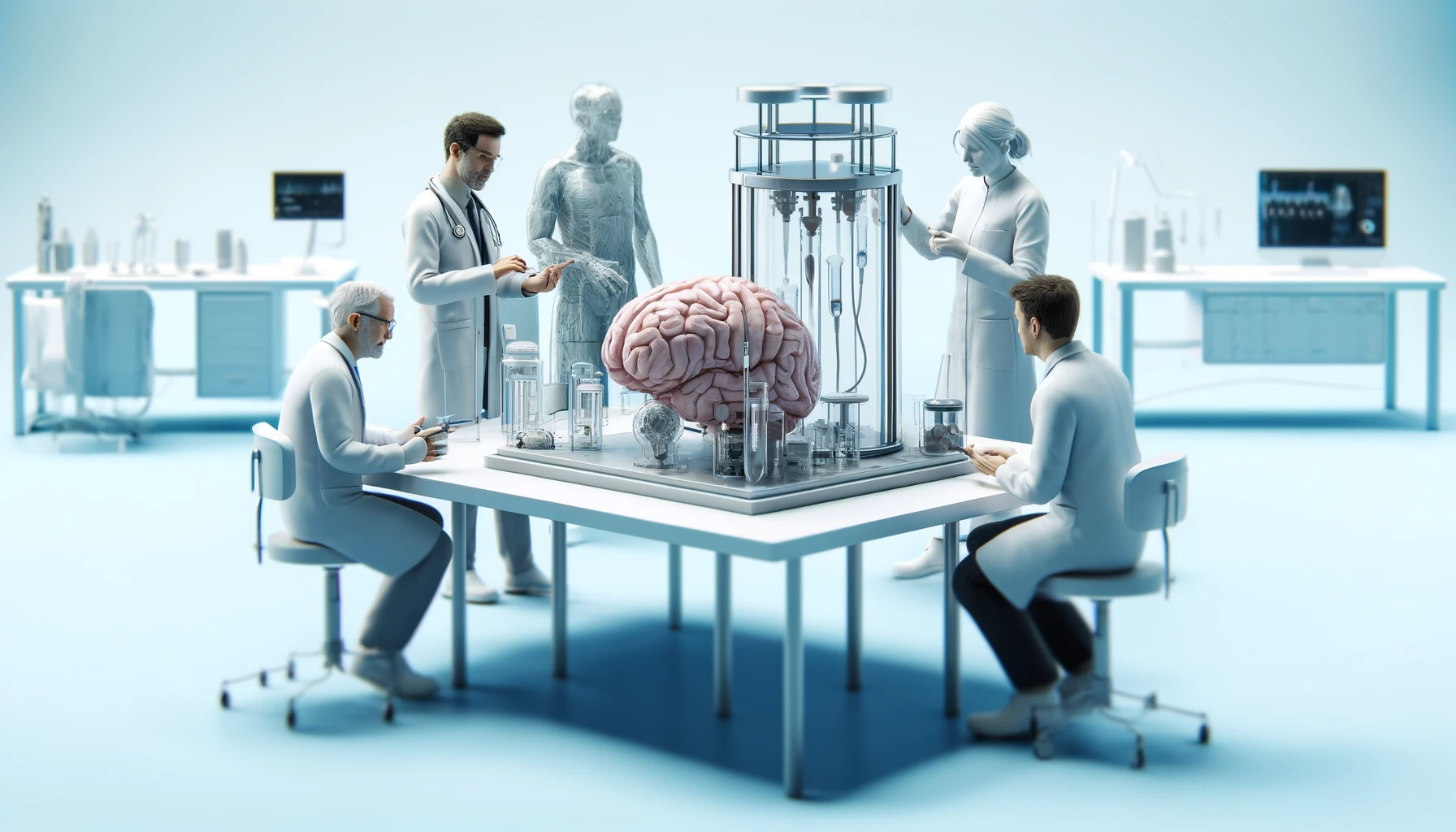
In a bid to revolutionize neurotechnology, Synchron Inc., a rival to Elon Musk’s Neuralink brain implant startup, is gearing up to launch a large-scale clinical trial for its device. The company’s chief executive, Thomas Oxley, revealed plans to recruit patients for the trial, a crucial step towards seeking commercial approval for their innovative brain implant technology. This move places Synchron in direct competition with Neuralink, signaling a burgeoning landscape in the field of brain-computer interface (BCI) devices.
The Road to Clinical Trials: A Significant Milestone
Synchron’s journey towards conducting a large-scale clinical trial represents a significant milestone in the development of their brain implant technology. The company plans to launch an online registry to facilitate patient recruitment, aiming to include dozens of participants in the trial. With approximately 120 clinical trial centers expressing interest in collaborating, Synchron is poised to embark on a groundbreaking endeavor that could potentially transform the lives of individuals with motor impairments.
A Race for Innovation: Synchron vs. Neuralink
The rivalry between Synchron and Neuralink underscores the intense competition within the neurotechnology sector. While both companies share a common goal of assisting paralyzed patients in typing using brain signals, their approaches differ significantly. Synchron’s device, delivered via a large vein adjacent to the motor cortex, offers a unique alternative to Neuralink’s surgically implanted brain cortex device. As the race for innovation heats up, stakeholders eagerly anticipate the outcomes of these competing ventures.
Navigating Regulatory Hurdles: FDA Approval and Beyond
As Synchron prepares to initiate its clinical trial, navigating regulatory hurdles remains a critical aspect of their journey. While the company has received preliminary authorization for testing, final approval from the U.S. Food and Drug Administration (FDA) is essential for commercialization. The regulatory landscape presents challenges and opportunities, shaping the trajectory of Synchron’s groundbreaking technology.
Expanding the Market: Addressing Diverse Patient Populations
Synchron’s ambition extends beyond the trial’s scope, aiming to address diverse patient populations, including those with neurodegenerative diseases such as ALS, stroke, and multiple sclerosis. Collaborations with esteemed institutions such as Mount Sinai, the University at Buffalo Neurosurgery, and the University of Pittsburgh Medical Center (UPMC) underscore the company’s commitment to advancing neurological care on a global scale.
Future Prospects: A Vision for Innovation and Growth
As Synchron progresses towards conducting its clinical trial, the company’s future prospects appear promising. With investors including prominent figures such as Jeff Bezos and Bill Gates, Synchron is well-positioned to drive innovation and reshape the landscape of neurotechnology. The journey ahead is fraught with challenges, but the potential impact of Synchron’s brain implant technology on enhancing quality of life for patients with motor impairments is undeniable.
Collaborative Endeavors: The Power of Partnerships
Synchron’s success hinges on strategic collaborations with leading medical institutions and research centers. By fostering partnerships with renowned neuroscientists and clinicians, Synchron leverages collective expertise to accelerate the development and validation of its brain implant technology. These collaborative endeavors underscore the importance of interdisciplinary cooperation in advancing scientific innovation and improving patient outcomes.
Empowering Patients: Transforming Lives Through Technology
At the heart of Synchron’s mission lies a commitment to empowering patients and enhancing their quality of life through technological innovation. By providing individuals with motor impairments access to cutting-edge neurotechnology, Synchron aims to restore independence and autonomy. The potential benefits extend beyond typing assistance, encompassing improved communication, mobility, and overall well-being for patients and their caregivers.
Conclusion: Pioneering the Future of Neurotechnology
In conclusion, Synchron’s readiness to launch a large-scale clinical trial represents a pivotal moment in the evolution of neurotechnology. As the company embarks on this transformative journey, the convergence of innovation, collaboration, and regulatory diligence will shape the future of brain-computer interface devices. With the potential to empower individuals with motor impairments, Synchron’s endeavors exemplify the boundless possibilities of technology in improving human health and well-being.










